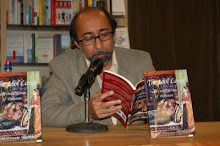 mes, camera movements, pacing of scenes and shots) demands attention and engagement from viewers. Kevin Thomas of Los Angeles Times fails to see the difference. Not only does he want every Iranian film to be a masterpiece, he confuses boredom (lack of action?)that emanates from the tragic, depressing and stagnant lives of young men sharing an apartment for weak direction. His complaints "A lot of screen time is spent on the roommates sitting around talking, often about nothing in particular, way past the point of tedium" or "Etti and her dreams bring the film into focus, but Nematollah (the first-time director) can't seem to resist diffusing it with sequences that go on too long" is typical of a child-viewer who's more at ease with the idiom that Hollywood - and by extension most entertainment - hammers into our brain.
mes, camera movements, pacing of scenes and shots) demands attention and engagement from viewers. Kevin Thomas of Los Angeles Times fails to see the difference. Not only does he want every Iranian film to be a masterpiece, he confuses boredom (lack of action?)that emanates from the tragic, depressing and stagnant lives of young men sharing an apartment for weak direction. His complaints "A lot of screen time is spent on the roommates sitting around talking, often about nothing in particular, way past the point of tedium" or "Etti and her dreams bring the film into focus, but Nematollah (the first-time director) can't seem to resist diffusing it with sequences that go on too long" is typical of a child-viewer who's more at ease with the idiom that Hollywood - and by extension most entertainment - hammers into our brain.Serious films - even when they're made to entertain as well - have to be viewed differently. Slow, unusual pacing of shots allows viewers to engage with what may be happening underneath the skin of the characters who seem depre
 ssed, lonely, angry, rejected, inept, unloved, confused. The filmmaker, by his/her choice of lens, camerawork, dialogues, lighting, long shots, forces viewers to examine the worlds the loneliness inside each one of us may have come to resemble. A serious filmmaker tries to bridge the gape between the highly philosophical and banal, attempts to bring into a clash/contrast the exterior and the interior of his characters.
ssed, lonely, angry, rejected, inept, unloved, confused. The filmmaker, by his/her choice of lens, camerawork, dialogues, lighting, long shots, forces viewers to examine the worlds the loneliness inside each one of us may have come to resemble. A serious filmmaker tries to bridge the gape between the highly philosophical and banal, attempts to bring into a clash/contrast the exterior and the interior of his characters.Robert Koehler writing in Variety is more on the mark when he points out, "In this wide-ranging and despairing portrait of a society in crisis, Nematollah's camera frequently seems as loose and unhinged as his characters, some of whom while away the day addicted to opium or watching the tube. Golzar, departing from his usual mode as a bland matinee idol, uses Hamid's subdued nature as a front; when he explodes with anger at the end, it's the rage the movie has been building slowly to all along." Yet the fact is that we don't see Golzar explode in voice, only in action, even that only off camera. The entire scene puts the likes of Scorcese, Spielberg, Tarantino and many other icons of Hollywood to the dustbin of mediocrity. A lesser film would have the half-conscience of the film, the male hero, explode, a lesser filmmaker would have allowed the lead actor to unleash his talent, his range, from subdued to meteoric. However, one of the memorable scenes, acting-wise, takes place at a bridge over street traffic: the lead actress, Golshifte Farahani, who completely succeeds in keeping the audience ambivalent, even irritated, about her childlike behavior, in fact, explodes, revealing an anti-heroine, an angry young woman suffocating inside her. The range of acting the two display should give the viewers some hint into the rich and complex Iranian school of acting.


